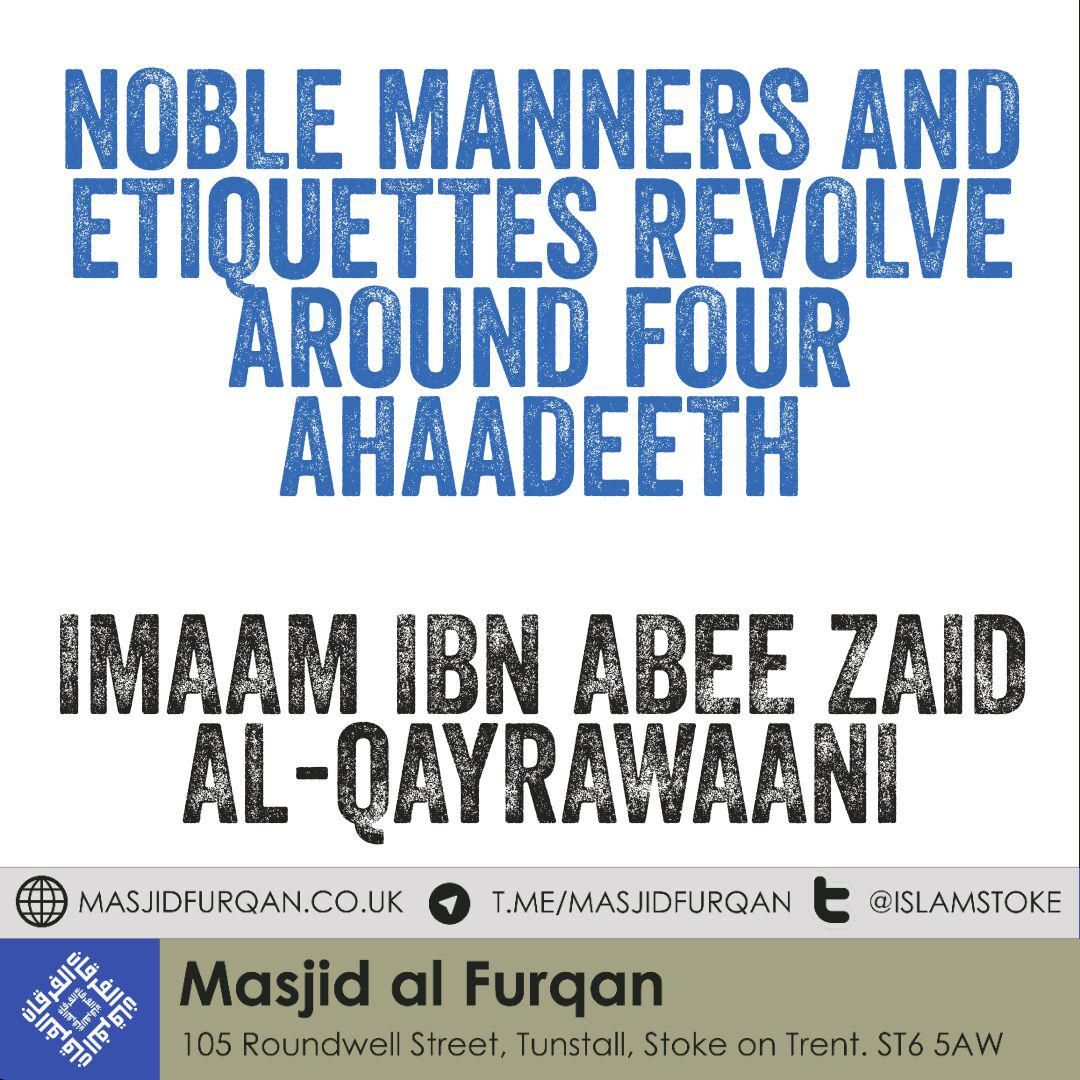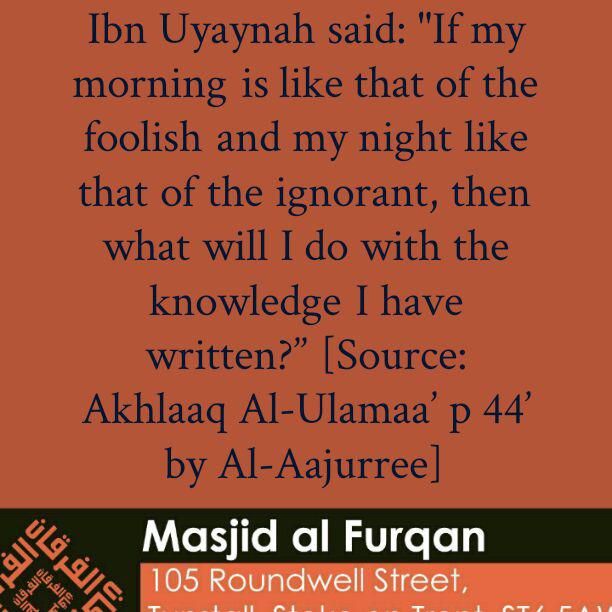In The Name of Allaah, The Most Merciful, The Bestower of Mercy
Neither Do the Prophets, Messengers and Angels Possess Knowledge of Unseen nor Does Allaah Reveal the Unseen to Anyone Else, Except What He Wishes to Inform the Prophets and Messengers
Allaah (The Most High) said: [وَعِنْدَهُ مَفَاتِحُ الْغَيْبِ لَا يَعْلَمُهَا إِلَّا هُوَ – And with Him are the keys of the Ghaib (all that is hidden), none knows them but He] [6:59]
In his explanation of the above Ayah, Imaam Ash-Shanqeetee (rahimahullaah) brought a number of robust proofs to demonstrate and establish that even the most knowledgeable amongst the creation- Allaah’s Messengers and Angels-do not posses knowledge of the Unseen. The Imaam (rahimahullaah) said:
Proof 1: Aa’isha (radiyallaahu-anhaa) was falsely accused and the Prophet (sallal-laahu-alayhi-wasallam) did not know whether she was innocent or not until Allaah informed him, saying: [ أُولَٰئِكَ مُبَرَّءُونَ مِمَّا يَقُولُونَ- ‘Such (good people) are innocent of (each and every) bad statement which they say’ (24:26)]
Proof 2: Prophet Ibraaheem (alayhis-salaam) slaughtered a lamb for the angels, whilst not knowing that they were angels until they informed him that they were angels. Allaah said that the angels said to him: [إِنَّا أُرْسِلْنَا إِلَىٰ قَوْمِ لُوطٍ – We have been sent against the people of Lout (Lot). (11:70)]
Proof 3: Also when the angels came to Prophet lut (alayhis-salaam) he did not know that they were angels, and due to that Allaah said: [عَصِيبٌ سِيءَ بِهِمْ وَضَاقَ بِهِمْ ذَرْعًا وَقَالَ هَٰذَا يَوْمٌ – He was grieved on their account and felt himself straitened for them (lest the town people should approach them to commit lewdness with them). He said: “This is a distressful day(11:77)]. And because of this Allaah said that lut said: [لَوْ أَنَّ لِي بِكُمْ قُوَّةً أَوْ آوِي إِلَىٰ رُكْنٍ شَدِيدٍ – Would that I had strength (men) to overpower you, or that I could betake myself to some powerful support (to resist you). (11:80)]. He did not know the news the angels brought until they said to him: [إِنَّا رُسُلُ رَبِّكَ لَنْ يَصِلُوا إِلَيْكَ – Verily, we are the Messengers from your Lord! (11:81)]
Proof 4: Prophet Yaqoob (alayhis-salaam) lost his eye sight due to grieving for Yusuf (alayhis-salaam), whilst he was in Egypt. He did not know anything about Yusuf until Allaah reveal news about him.
Proof 5: Prophet Sulaymaan (alayhis-salaam), even though Allaah gave him authority over the devils and subjugated the wind in his service, did not know about the people Bil Qees until the Hud’hud came with news about them. Allaah said that the Hud’hud said: [أَحَطْتُ بِمَا لَمْ تُحِطْ بِهِ وَجِئْتُكَ مِنْ سَبَإٍ بِنَبَإٍ يَقِينٍ – I have grasped (the knowledge of a thing) which you have not grasped and I have come to you from Saba’ (Sheba) with true news] (27:22)]
Proof 6: Prophet Nuh (alayhis-salaam) did not know that his son – who was drowned- was not from those members of his household who were to be saved, as Allaah said that Nuh said:
[رَبِّ إِنَّ ابْنِي مِنْ أَهْلِي وَإِنَّ وَعْدَكَ الْحَقُّ – O my Lord! Verily, my son is of my family! And certainly, Your Promise is true.(11:45)]
He did not know the reality of the affair until Allaah informed him, saying:
[بِهِ عِلْمٌ ۖ إِنِّي أَعِظُكَ أَنْ تَكُونَ مِنَ الْجَاهِلِينَ قَالَ يَا نُوحُ إِنَّهُ لَيْسَ مِنْ أَهْلِكَ ۖ إِنَّهُ عَمَلٌ غَيْرُ صَالِحٍ ۖ فَلَا تَسْأَلْنِ مَا لَيْسَ لَكَ – He said: “O Nuh (Noah)! Surely, he is not of your family; verily, his work is unrighteous, so ask not of Me that of which you have no knowledge! I admonish you, lest you be one of the ignorant(11:46)]
And indeed Allaah (The Most High) also stated in Surah Hud about Nuh that he said to his people: [وَلَا أَقُولُ لَكُمْ عِنْدِي خَزَائِنُ اللَّهِ وَلَا أَعْلَمُ الْغَيْبَ -And I do not say to you that with me are the Treasures of Allah, “Nor that I know the Ghaib (unseen)..(11:31)]
Proof 7: And when Allaah said to the Angels: [هَٰؤُلَاءِ إِنْ كُنْتُمْ صَادِقِينَ أَنْبِئُونِي بِأَسْمَاءِ -Tell Me the names of these if you are truthful]; Allaah said that the angels replied: [قَالُوا سُبْحَانَكَ لَا عِلْمَ لَنَا إِلَّا مَا عَلَّمْتَنَا -They (angels) said: “Glory be to You, we have no knowledge except what you have taught us. [2:31-32]
Therefore, it is very clear that the most knowledgeable amongst the creation, the Messengers and the Angels, do not know anything of the unseen except what Allaah makes known to them. Allaah (The Most High) informs His Messengers what He wishes from the knowledge of the Unseen, as Allaah stated: [وَمَا كَانَ اللَّهُ لِيُطْلِعَكُمْ عَلَى الْغَيْبِ وَلَٰكِنَّ اللَّهَ يَجْتَبِي مِنْ رُسُلِهِ مَنْ يَشَاءُ ۖ- Nor will Allah disclose to you the secrets of the Ghaib (unseen), but Allah chooses of His Messengers whom He pleases. (3:179)]
And Allaah said: [إِلَّا مَنِ ارْتَضَىٰ مِنْ رَسُولٍ عَالِمُ الْغَيْبِ فَلَا يُظْهِرُ عَلَىٰ غَيْبِهِ أَحَد- (He Alone) the All-Knower of the Gha’ib (unseen), and He reveals to none His Gha’ib (unseen).” Except to a Messenger (from mankind)…(72:26-27)] [Ref 1]
End of paraphrased quote from Imaam Shanqeeti (rahimahullaah)
————————————————–
NB: There are some people in the Muslim lands – in Africa, Asia etc- who claim that they possess Ilmul Ghaib (Knowledge of the Unseen) and that they can inform the people about the future. Many common Muslims have a good suspicion of these people, especially those whom the people regard to be pious leaders of the Soofee paths – the Tijaaniyyah and others. Some African scholars, such as Shaikh Taqiyuddeen Al-Hilaali, Shaikh Umar Fullaata and Shaikh Abdur-Rahmaan Ibn Yusuf Al-Afreeqee have spoken in detail about some of the beliefs of the Tijaanis- beliefs that clearly contradict the Qur’aan, the authentic Sunnah of the Messenger (sallal-laahu-alayhi-wasalam) and what the Companions of Muhammad adhered to.
Therefore, regardless what people claim, one cannot be oblivious of the fact that the religion of Islaam is not based on mere opinion, views, fables, fabricated narrations or the experiences of the Soofee masters and guides, rather it has been established -without any doubt- that none has knowledge of the unseen besides Allaah, and that Allaah only reveals the unseen to Prophets and Messengers when He wishes. We cannot simply fix our gaze on the humble physical appearances, devotion in prayer and the long prayer beads displayed by the soofee masters and guides; rather all affairs of the religion- beliefs, practices, manners, morals etc- is to be based on the The Qur’aan, The Authentic Sunnah of the Messenger (sallal-laahu-alayhi-wasallam) and the practice of the companions of the Prophet.
Indeed, Allaah does not reveal knowledge of the Unseen to anyone, except to Prophets and Messengers when he wishes to do so. So, if anyone claims that he (or she) knows the future or his (or her) Shaikh knows the future, then remind them of what has been stated in the above article as well as what is stated in the following authentic hadeeth reported by Imaam Al-Bukhaari:
Narrated Abu Hurairah (radiyallaahu-anhu):
The Prophet (ﷺ) said, “When Allah has ordained some affair in the Heaven, the angels beat with their wings in obedience to His statement, which sounds like a chain dragged over a rock.” (`Ali and other sub-narrators said, “The sound reaches them.”) “Until when fear is banished from their (angels) hearts, they (angels) say, ‘What was it that your Lord said? They say, ‘The truth; And He is the Most High, the Most Great.’ (34.23) Then those who gain a hearing by stealing (i.e. devils) will hear Allah’s Statement:– ‘Those who gain a hearing by stealing, (stand one over the other like this). (Sufyan, to illustrate this, spread the fingers of his right hand and placed them one over the other horizontally.) A flame may overtake and burn the eavesdropper before conveying the news to the one below him; or it may not overtake him till he has conveyed it to the one below him, who in his turn, conveys it to the one below him, and so on till they convey the news to the earth. (Or probably Sufyan said, “Till the news reaches the earth.”) Then the news is inspired to a sorcerer who would add a hundred lies to it. His prophecy will prove true (as far as the heavenly news is concerned). The people will say. ‘Didn’t he tell us that on such-and-such a day, such-and-such a thing will happen? We have found that is true because of the true news heard from heaven.” The above hadith is also narrated by Abu Huraira, starting: ‘When Allah has ordained some affair…’) In this narration the word foreteller is added to the word wizard. [Ref 2]
Finally, many people are usually excited by the miracles that take place at the hands of some of the Soofees, therefore – in this series -we will also address this subject matter based on clarifications written by the scholars of the authentic Sunnah.
To be continued…InShaaAllaah
[Ref 1: [Paraphrased and Abridged. Source: Tafseer Al-Qur’aan Bil-Qur’aan Min Adwaa Al-Bayaan’ pages 169-170’ Daar Hady An-Nabawiy’ 2nd ed. (1431AH -2010)]….. see Arabic text here:


[Ref 2: Saheeh Al-Bukhaari Vol 6’ Hadeeth Number 4701’ Darussalam Print]






